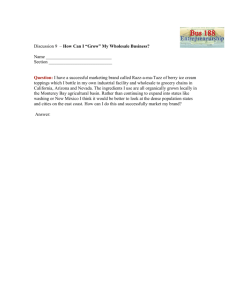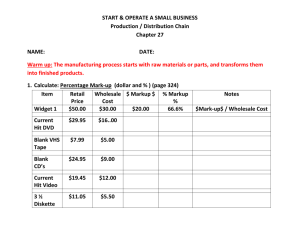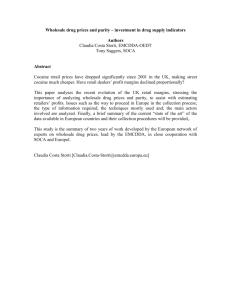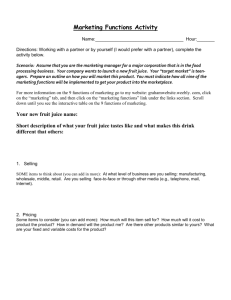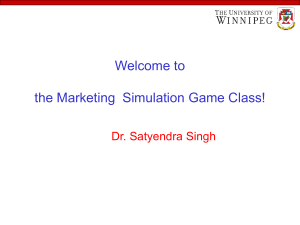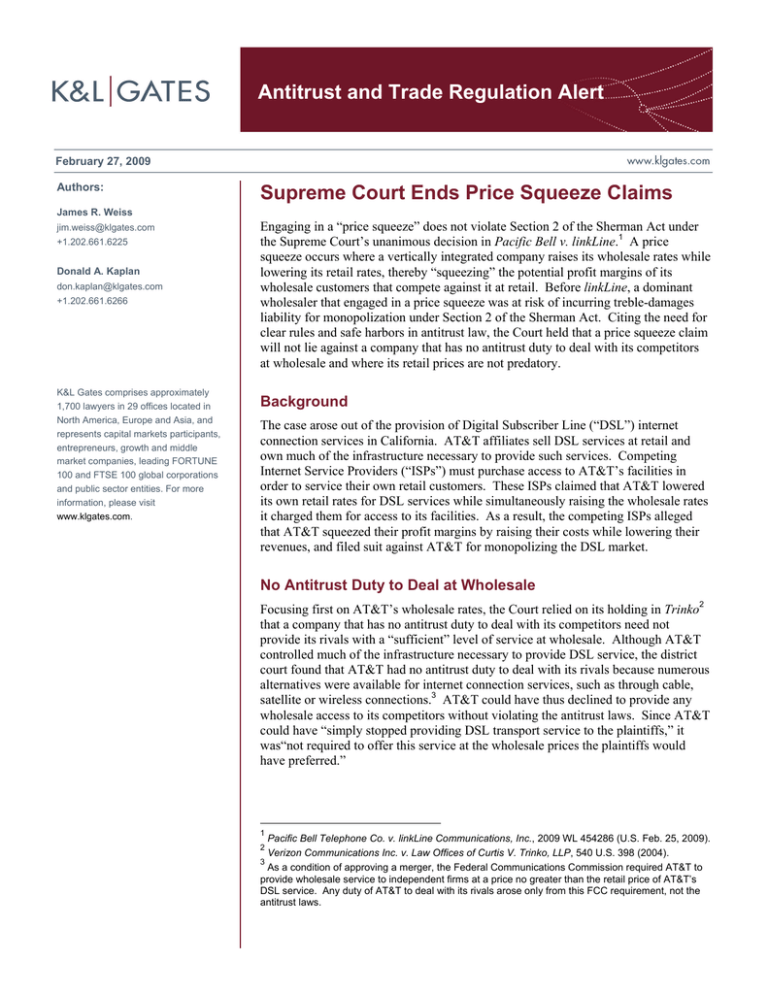
Antitrust and Trade Regulation Alert
February 27, 2009
Authors:
Supreme Court Ends Price Squeeze Claims
James R. Weiss
jim.weiss@klgates.com
+1.202.661.6225
Donald A. Kaplan
don.kaplan@klgates.com
+1.202.661.6266
K&L Gates comprises approximately
1,700 lawyers in 29 offices located in
North America, Europe and Asia, and
represents capital markets participants,
entrepreneurs, growth and middle
market companies, leading FORTUNE
100 and FTSE 100 global corporations
and public sector entities. For more
information, please visit
www.klgates.com.
Engaging in a “price squeeze” does not violate Section 2 of the Sherman Act under
the Supreme Court’s unanimous decision in Pacific Bell v. linkLine.1 A price
squeeze occurs where a vertically integrated company raises its wholesale rates while
lowering its retail rates, thereby “squeezing” the potential profit margins of its
wholesale customers that compete against it at retail. Before linkLine, a dominant
wholesaler that engaged in a price squeeze was at risk of incurring treble-damages
liability for monopolization under Section 2 of the Sherman Act. Citing the need for
clear rules and safe harbors in antitrust law, the Court held that a price squeeze claim
will not lie against a company that has no antitrust duty to deal with its competitors
at wholesale and where its retail prices are not predatory.
Background
The case arose out of the provision of Digital Subscriber Line (“DSL”) internet
connection services in California. AT&T affiliates sell DSL services at retail and
own much of the infrastructure necessary to provide such services. Competing
Internet Service Providers (“ISPs”) must purchase access to AT&T’s facilities in
order to service their own retail customers. These ISPs claimed that AT&T lowered
its own retail rates for DSL services while simultaneously raising the wholesale rates
it charged them for access to its facilities. As a result, the competing ISPs alleged
that AT&T squeezed their profit margins by raising their costs while lowering their
revenues, and filed suit against AT&T for monopolizing the DSL market.
No Antitrust Duty to Deal at Wholesale
Focusing first on AT&T’s wholesale rates, the Court relied on its holding in Trinko2
that a company that has no antitrust duty to deal with its competitors need not
provide its rivals with a “sufficient” level of service at wholesale. Although AT&T
controlled much of the infrastructure necessary to provide DSL service, the district
court found that AT&T had no antitrust duty to deal with its rivals because numerous
alternatives were available for internet connection services, such as through cable,
satellite or wireless connections.3 AT&T could have thus declined to provide any
wholesale access to its competitors without violating the antitrust laws. Since AT&T
could have “simply stopped providing DSL transport service to the plaintiffs,” it
was“not required to offer this service at the wholesale prices the plaintiffs would
have preferred.”
1
Pacific Bell Telephone Co. v. linkLine Communications, Inc., 2009 WL 454286 (U.S. Feb. 25, 2009).
Verizon Communications Inc. v. Law Offices of Curtis V. Trinko, LLP, 540 U.S. 398 (2004).
3
As a condition of approving a merger, the Federal Communications Commission required AT&T to
provide wholesale service to independent firms at a price no greater than the retail price of AT&T’s
DSL service. Any duty of AT&T to deal with its rivals arose only from this FCC requirement, not the
antitrust laws.
2
Antitrust and Trade Regulation Alert
Although Trinko did not involve a price squeeze
claim, the Court found Trinko’s rationale directly
applicable: “The nub of the complaint in both
Trinko and this case is identical—the plaintiffs
alleged that the defendants (upstream
monopolists) abused their power in the wholesale
market to prevent rival firms from competing
effectively in the retail market. Trinko holds that
such claims are not cognizable under the Sherman
Act in the absence of any antitrust duty to deal.”
Retail Prices Not Predatory
Turning next to AT&T’s retail rates that it
allegedly set too low, the Court found that
plaintiffs cannot complain about low prices in the
absence of any allegation that such pricing is
predatory, i.e., set below an appropriate measure
of the predator’s cost in order to drive rivals from
the market, coupled with the dangerous
probability of recouping foregone profits.
Quoting its decisions in Matsushita4 and Atlantic
Richfield,5 the Court noted that cutting prices is
the essence of competition and that consumers
benefit from low prices regardless of how such
prices are set as long as they are above predatory
levels. “[T]he Sherman Act does not forbid—
indeed, it encourages—aggressive price
competition at the retail level, as long as the
prices being charged are not predatory.” The
Court found that the plaintiffs had not alleged
predatory pricing under the standards articulated
by its decision in Brooke Group.6
An Amalgamation of Meritless
Claims
With no liability for its actions in the wholesale or
retail markets, the Court rejected outright the
notion that AT&T’s conduct in those markets
could nevertheless together be considered
exclusionary under a general theory of “price
squeezing”:
Plaintiffs’ price squeeze claim, looking to
the relation between retail and wholesale
prices, is thus nothing more than an
amalgamation of a meritless claim at the
retail level and a meritless claim at the
wholesale level. If there is no duty to deal at
the wholesale level and no predatory pricing
at the retail level, then a firm is certainly not
required to price both these services in a
manner that preserves its rivals’ profit
margins.
The Court noted that plaintiffs could not “alchemize”
these two meritless claims into “a new form of
antitrust liability never before recognized by this
Court.” Such a theory would present the practical
problem of requiring courts to police both wholesale
and retail markets, a regulatory function that courts
are ill suited to administer.
Implications of linkLine
The linkLine decision has substantial implications for
vertically integrated manufacturers, particularly
those with large shares of the wholesale markets in
which they operate. Price squeeze claims have been
recognized by the Courts of Appeals for many years
since the Second Circuit’s 1945 decision in Alcoa.7
They have also been common in certain regulated
industries, such as the electric power industry. Since
the Seventh Circuit’s 1977 opinion in Mishawaka,8
competitors have asserted price squeeze claims
against vertically integrated companies that sell
electric power at both wholesale and retail.
Although the filed rate doctrine bars private price
squeeze claims for damages from wholesale rates,
the filed rate doctrine does not preclude government
enforcement or injunctive relief in some cases.
The Court, however, implicitly abrogated Alcoa and
swept aside other precedents allowing price squeeze
claims, stating that “[g]iven recent developments in
economic theory and antitrust jurisprudence since
Alcoa, we find our recent decisions in Trinko and
Brooke Group more pertinent to the question before
us.” The rationale supporting Alcoa and other price
4
Matsushita Elec. Industrial Co. v. Zenith Radio Corp., 475
U.S. 574 (1986).
5
Atlantic Richfield Co. v. USA Petroleum Co., 495 U.S. 328
(1990).
6
Brooke Group Ltd. v. Brown & Williamson Tobacco Corp.,
509 U.S. 209 (1993).
7
United States v. Aluminum Co. of America, 148 F.2d 416 (2d
Cir. 1945).
8
City of Mishawaka v. Indiana & Michigan Elec. Co., 560 F.2d
1314 (7th Cir. 1977).
February 27, 2009
2
Antitrust and Trade Regulation Alert
squeeze cases, that liability for monopolization
can arise where a dominant wholesale firm
charges a wholesale rate higher than a “fair price”
that assures competitors an acceptable profit
margin in the downstream retail market in which
both compete, is apparently no longer valid.
Indeed, in rejecting a suggestion by amici that the
Court employ a “transfer price” test that would
look to whether a monopolist would make a profit
with its retail rates if it purchased inputs at its
wholesale rates, the Court gave the green light to
vertically integrated firms charging more at
wholesale than they do at retail. As the Court
held, “If both the wholesale price and the retail
price are independently lawful, there is no basis
for imposing antitrust liability simply because a
vertically integrated firm’s wholesale price
happens to be greater than or equal to its retail
price.”
Citing Aspen Skiing,9 the Court did leave open the
possibility that an independent antitrust duty to deal
with one’s competitors could render a refusal to deal
actionable under the Sherman Act. Given the sharp
curtailment of the antitrust duty to deal that has
resulted from more recent decisions such as Trinko,
and the stricter requirements for pleading antitrust
complaints that have existed since Twombly,10
however, the opportunities to press such a claim may
be rare.
linkLine makes it clear that price squeeze claims in
any context are no longer viable as an independent
cause of action. It is another step in a line of recent
Supreme Court cases paring back antitrust liability in
favor of “clear rules” to which business can adhere
with certainty and safe harbors that shield specific
conduct from antitrust liability.
K&L Gates comprises multiple affiliated partnerships: a limited liability partnership with the full name K&L Gates LLP qualified in Delaware
and maintaining offices throughout the U.S., in Berlin and Frankfurt, Germany, in Beijing (K&L Gates LLP Beijing Representative Office), and
in Shanghai (K&L Gates LLP Shanghai Representative Office); a limited liability partnership (also named K&L Gates LLP) incorporated in
England and maintaining our London and Paris offices; a Taiwan general partnership (K&L Gates) which practices from our Taipei office;
and a Hong Kong general partnership (K&L Gates, Solicitors) which practices from our Hong Kong office. K&L Gates maintains appropriate
registrations in the jurisdictions in which its offices are located. A list of the partners in each entity is available for inspection at any K&L
Gates office.
This publication is for informational purposes and does not contain or convey legal advice. The information herein should not be used or
relied upon in regard to any particular facts or circumstances without first consulting a lawyer.
©2009 K&L Gates LLP. All Rights Reserved.
9
Aspen Skiing Co. v. Aspen Highlands Skiing Corp., 472 U.S.
585 (1985).
10
Bell Atlantic Corp. v. Twombly, 550 U.S. 544 (2007).
February 27, 2009
3

